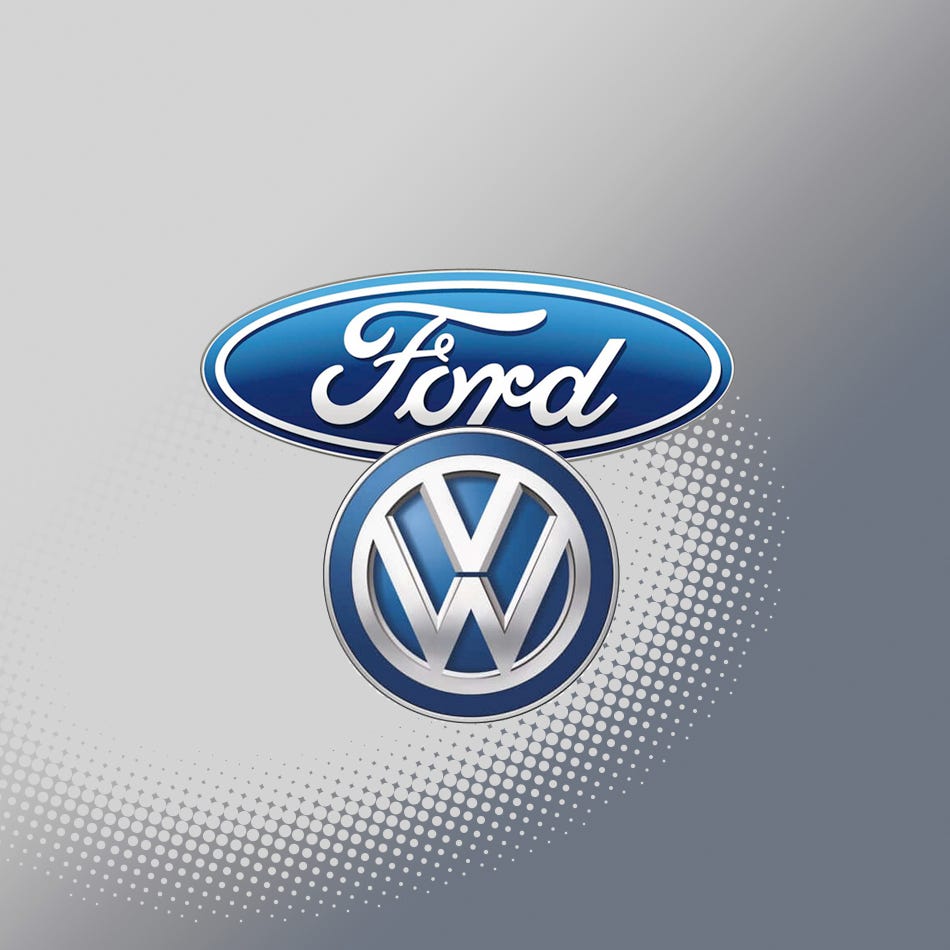Ford, Volkswagen mulling global self-driving partnership
Ford Motor Co. and Volkswagen AG are discussing a global partnership on self-driving vehicles that would align two of the world's largest automakers behind one of the biggest bets on the future of the auto industry.

The companies have been exploring a partnership on autonomous vehicles as part of talks that began earlier this year, two ranking sources close to the situation told The Detroit News on Friday. Any alliance would not include cross-shareholding, or a merger, of the parent companies, the automakers have stressed.
The discussions intensified after the companies in June signed a memorandum of understanding to explore how and whether Ford and VW could co-develop commercial vehicles, which could play a role in a self-driving vehicle partnership. A pending deal on autonomous vehicles is progressing, one of the sources told The News.
The partnership likely would be a critical piece of Ford and CEO Jim Hackett's ongoing $11 billion global restructuring aimed at stemming losses in Europe and South America, growing market share in China, boosting profit margins in North America and cutting costs globally to free capital for investments in next-generation technology.
Volkswagen is currently the best-selling automaker in China, where Ford has struggled to enlarge its foothold. The German automaker, based in Wolfsburg west of Berlin, also has strong presences in South America and Europe, two markets where Ford has struggled in recent years. Last year, Ford lost $479 million in South America, $199 million in Europe and $721 million in its Asia Pacific market.
Volkswagen, meantime, would piggyback on Dearborn-based Ford's market penetration in North America. It also would gain access to the Pittsburgh-based Argo AI, the company in which Ford invested $1 billion to develop software for its autonomous vehicle system.
A tie-up would enable the companies to offer a wider portfolio of vehicles for self-driving technology, to spread costs and to build the economies of scale thought necessary to profitably build battery-electric autonomous vehicles. Ford has spent $479 million on mobility so far this year.
"These companies can form some partnerships on this stuff and spread out the costs of some of this development," said Sam Abuelsamid, analyst with Navigant Research, a company that tracks autonomous vehicle development. "The costs of this technology are enormous. If they can develop one system that they both utilize, they can spread that cost over more vehicles."
Partnership is proving to be an increasingly popular route to the mobility, autonomy and electrification of Auto 2.0. Google parent Alphabet Inc.'s Waymo self-driving unit is partnering with Fiat Chrysler Automobiles NV to provide minivans to its Waymo self-driving unit. Toyota Motor Corp. is partnering with Uber Technologies Inc. on self-driving cars.
And General Motors Co. and its self-driving arm, GM Cruise LLC, last month inked a deal with Honda Motor Co. to develop and build a “purpose built” autonomous vehicle, with Honda investing $2.75 billion in Cruise over 12 years.
The partnership creates a formidable trans-Pacific player in the race to deploy autonomous vehicles, in part because the two automakers have complementary global footprints. For GM, the partnership provides access to the Japanese market and Honda's expertise in small car development.
A tie-up of Ford and Volkswagen's autonomous businesses would also reunite two robotics and autonomous vehicle pioneers. Volkswagen currently partners with Silicon Valley startup Aurora on its own autonomous vehicle development. Chris Urmson, CEO of Aurora, worked with Bryan Salesky, CEO of Argo, when the two worked at Google.
The VW-Ford discussions regarding autonomous vehicles were first reported by Bloomberg. The companies announced in June they had signed a memorandum of understanding to explore partnering on commercial vehicle development. One source said Ford and Volkswagen had been discussing an autonomous vehicle partnership since the beginning of this year. The talks are ongoing.
“Collaboration isn’t being limited in any way whatsoever, whether it’s different types of technology, product segments or geography,” Ford CFO Bob Shanks told Bloomberg. “We’re having a very broad set of discussions about how we can help each other around the world."
Details of any proposed VW-Ford tie-up could come as early as Nov. 16, Reuters reported. That's when the German automaker's CEO, Herbert Diess, could present his plan on advanced technology investment — including a potential self-driving partnership with Ford that could reduce steep development costs.
A partnership on commercial vehicles could be another cost-saving boon for the companies if they partner on autonomous vehicles. The companies have made clear that any partnerships would not result in or be considered a merger.
Ford in July announced plans to separate its autonomous vehicle business into a separate business unit to attract outside investment. Volkswagen and Ford could partner on autonomous vehicles through Ford Autonomous Vehicles LLC.
A source told The News that leadership from both Ford and Volkswagen are treating discussions around autonomous vehicle tie-ups as separate from the commercial vehicle partnership. Volkswagen did not respond to requests for comments.
Ford spokeswoman Jennifer Flake said in a statement that, "Our (Memorandum of Understanding) with VW covers conversations about potential collaborations across a number of areas. It is premature to share additional details at this time."
ithibodeau@detroitnews.com
Twitter: @Ian_Thibodeau